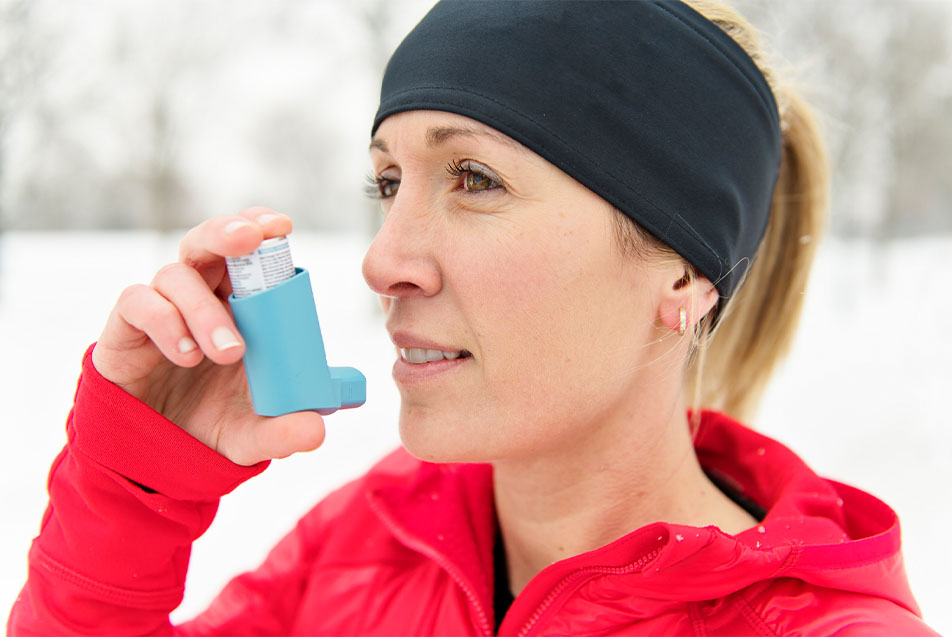
This post was written by Heather Willison, MSN, FNP-C, PPG – Allergy, Asthma, and Immunology.
Many would assume that those with allergies and asthma might fare better in the winter months when there is no pollen to be found. But in reality, for many, this couldn’t be further from the truth. Winter can be problematic for asthmatics for a few reasons, including more time spent outside, more time spent inside, and exposure to respiratory illnesses.
Outdoor winter asthma triggers
The number one outdoor trigger in the winter months is the cold, dry air. We have all ventured outdoors on a winter day and had the cold air literally steal our breath away. This can lead to coughing, shortness of breath, chest tightness and/or wheezing for someone with asthma.
When going outside, it’s important to cover your mouth and nose with a light, moisture-wicking scarf if the cold air is a trigger for you, in order to prevent an asthma attack. Using your rescue inhaler prior to heading outside when the temperature is frigid can also be helpful in preventing these symptoms.
Indoor winter asthma triggers
Of course, when the weather turns cold, we often spend more time in our homes. For those with allergies to pets, mold or dust mites, this can be an issue if those allergens are present. Keeping pets well groomed, and out of the bedroom and off furniture can be helpful, as well as vacuuming and sweeping twice weekly.
Dust mites and mold both thrive in warm, moist environments so, keeping the home cool and dry is important. You can do this by running an exhaust fan in the bathroom while showering or bathing, as well as fixing any leaky pipes or faucets before mold can develop. Dust mite impermeable covers can be purchased at low prices at most popular big box stores to cover pillows and mattresses. Washing linens in hot water (or drying them on high heat) once weekly will also reduce dust mite exposure.
What you use to heat your home can also contribute to a worsening of asthma symptoms. Inhaling the smoke from wood burning fireplaces or stoves can cause difficulty breathing, as well as inhaling the fumes from gas log fireplaces, if they are not properly vented. It is also important to frequently replace furnace filters.
Respiratory illnesses
Respiratory illnesses are a common asthma trigger in the winter months. We stress in our office the importance of getting an annual flu vaccine. Washing your hands frequently is also very important. Of course, the best way to prevent getting a respiratory illness is to stay away from people who are exhibiting cold symptoms (sneezing, runny or stuffy nose, coughing, etc.). Likewise, please stay home if you are experiencing cold symptoms to prevent the spread of respiratory illness.
It all comes down to identifying your triggers and learning how to navigate them. Please contact the providers at PPG – Allergy, Asthma, and Immunology if you have any questions or concerns. We would love to partner with you. We have offices on the Parkview Regional Medical Center campus, as well as Parkview Inverness, and will also be seeing patients on the Parkview DeKalb Hospital campus starting in February.



